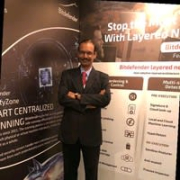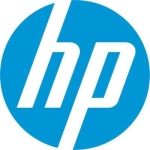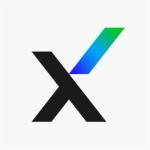What is our primary use case?
We offer Bitdefender GravityZone Ultra to our clients. GravityZone Ultra has features such as encryption. I can do anything from their simple core, which is just antivirus, to their complete MDR product if necessary. However, what I usually do is install core plus ATS with encryption and then integrate that with the SOC service so that you only have to look at the SOC interface to monitor the Bitdefender logs. Essentially, it streamlines the SOC.
It's a product from EDR. We are monitoring endpoints for malicious code. It's a basic antivirus. We are also looking for day-zero attacks and for anomalous behavior as well. That's it, ostensibly.
What is most valuable?
It's a very comprehensive product. I like the fact that Bitdefender is used by about 38% or more, of other security vendors is another type of tick box that lends credibility.
What needs improvement?
If we're simply looking at endpoint monitoring, I think the problem is that your basic antivirus, your standard anti-virus, is woefully inadequate.
If you think about small to medium-sized enterprises, my concern is that if they ask for guidance, they'll be told to turn on antivirus. They'd presumably get McAfee or Norton or something similar as an antivirus program. Then they'll probably be told to turn on their Microsoft Defender firewall and not do much else. That is a very dangerous position to be in, because, as we all know, phishing attacks are becoming increasingly sophisticated. They get past people's perimeter defenses, and the staff is deceived into clicking on them, putting them in danger. There are numerous techniques to consider.
Small businesses can get a complete security package from me. It has six layers of security, including Bitdefender's antivirus and encryption, as well as interaction with a security operations center. There are more levels to it, but those three are critical since most antivirus programs, even those from businesses like Sophos and McAfee, and less so from Symantec, appear to have changed who they want to market to at the present.
All of those firms are dreadfully short, whereas Bitdefender if you look at the marketing and blogs and technical stuff that Bitdefender releases on a daily basis, is far superior. Bitdefender is producing extremely high-quality threat intelligence. And if you look at Gartner's right-hand side of the Quadrant, Bitdefender is currently rated as their best endpoint security product, according to Gartner.
The one thing I'd say about their complete MDR product is that it's too expensive, which is why I prefer to use an alternative SOC and integrate Bitdefender to a different SOC on their own.
More integrations are always beneficial.
For how long have I used the solution?
I have been dealing with Bitdefender GravityZone Ultra for two years.
It could be either cloud or on-premises. In fact, I just sold a Bitdefender solution that includes protection for their mobile devices. As a result, Bitdefender for their workstation is cloud-based. Bitdefender for their mobile must be an on-premise device appliance.
What do I think about the stability of the solution?
Bitdefender's stability has never been an issue for me. That's not to suggest other companies haven't had issues, but I haven't had any.
What do I think about the scalability of the solution?
In terms of scalability, I've installed it on companies as small as two people and as large as hundreds of people. In my opinion, it scales perfectly well. The nice thing about Bitdefender is that it has modules and layers that you can add as the requirement becomes more sophisticated and dangerous or threatening.
How are customer service and support?
We handle the majority of tech support. I have firsthand knowledge of it. They're responsive, intelligent, and generally good.
Which solution did I use previously and why did I switch?
I have prior experience with the Cisco Secure Endpoint product, that's true, but it's a little rusty. I previously worked for Cisco. I'm familiar with AMP and AnyConnect, as well as their various solutions. However, it is most likely out of date.
I deal with numerous other vendors, Bitdefender in particular, but also with certain other managed service providers that offer entire solutions. In addition, I offer a managed secured operation center service to my clients. Within my experience, I have my own service as well as merchandise from other suppliers.
How was the initial setup?
Its implementation is straightforward. It's very simple. I'm going through a setup at the moment, although, I am not the technical guy who does it, I know the feedback is that it's very simple.
I'm installing it on about 250 endpoints for a company, and I expect it to be available in two days.
What's my experience with pricing, setup cost, and licensing?
The pricing is competitive.
I offer it in two forms. I either sell it as an annual license, which is fine if consumers want it that way, or as a managed service.
I can purchase a Bitdefender license as a managed service, which allows me to take responsibility for monitoring and maintaining it on behalf of my clients. They have both models at their disposal.
They have a choice in terms of licensing fees. They can purchase it as a managed service on a monthly subscription basis, or they can purchase an annual or three-year contract, as I do. It makes sense. When you sign a three-year contract, the price drops, and it doesn't make sense to replace an end-point solution every 12 months. It's a great deal if you buy it through me.
What other advice do I have?
Yes, I would recommend this solution to others who are interested in using it.
I would rate Bitdefender GravityZone Ultra a ten out of ten.
Disclosure: My company has a business relationship with this vendor other than being a customer. Partner




















